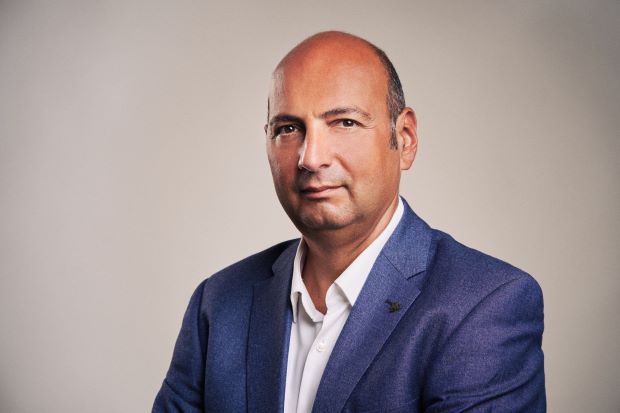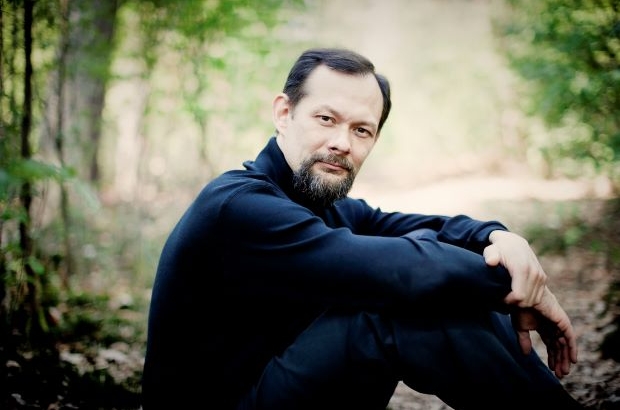- Daily & Weekly newsletters
- Buy & download The Bulletin
- Comment on our articles
“Konstantin Ishkhanov’s contributions to classical music are extraordinary,” says Enrico Pace ahead of ICCF debut in Brussels
Over the past few decades, internationally-acclaimed pianist Enrico Pace (pictured) has built an illustrious career within the world of classical music, captivating audiences worldwide with his solo performances, chamber collaborations, and exceptional contributions as a professor and pedagogue.
Renowned for his versatility and emotive artistry, Pace has performed on some of the most prestigious stages around the globe, including Wigmore Hall, the Berlin Philharmonie, and Carnegie Hall, to mention a select few.
This year, Pace will be joining the roster of the inaugural International Chamber Classics Festival (ICCF), which is set to take place from 9 to 13 May 2025 at the Queen Elisabeth Music Chapel in Brussels.

Founded by Konstantin Ishkhanov (pictured above) and helmed by artistic director David Abrahamyan, this groundbreaking endeavour will combine high-level masterclasses, cross-generational collaboration, and world-class performances in a celebration of the unique charms of chamber music, and its inimitable power to connect artists and audiences.
We sat down with Pace ahead of this event, as he shared his thoughts on ICCF’s vision, his approach to music education, and the profound impact that can be had through a collaborative mindset.
As both a performer and educator, what drew you to participate in the inaugural International Chamber Classics Festival (ICCF), and what excites you most about its concept?
“I always enjoy attending chamber music festivals, especially when they are organised by friends. A warm and welcoming atmosphere enhances the joy of rehearsing and performing. This festival is particularly exciting because I’ll be making music with wonderful colleagues, including long-time musical partners of mine such as Diemut Poppen.”
You’ll be leading masterclasses during the festival. How do you approach working with young musicians, and what do you hope they will take away from this experience?
“It’s always enriching to meet younger musicians and inspire them through our shared love for music. I like to think of us as detectives, carefully examining the score to uncover clues about the composer’s intent. But knowledge isn’t enough — it must eventually be transformed into sound. I encourage young musicians to explore the dynamic interplay between mind, body, and emotions, striving for a holistic approach to music-making.”
Chamber music is a central focus of ICCF. How do you think chamber performances differ in emotional and technical demands compared to solo or orchestral works? Do you have a preference for one or the other?
“Chamber music is unique in that it requires a blend of individual freedom and collective organisation. When playing solo, you have complete freedom to interpret the music as you feel in the moment. In chamber music, however, you share the creative process with others, and the results can be extraordinary. When an ensemble reaches a shared understanding of the music, the emotional impact is amplified, creating an almost magical experience!”
You’re set to perform in one of the concerts during ICCF. Can you share some insights into the repertoire you’ll be presenting?
“One of the pieces we’ll perform is Brahms’ Clarinet Trio, but in the viola version, with viola, cello, and piano. The viola’s darker, more resonant tone lends a different character to the work, complementing the nostalgic atmosphere of this late Brahms composition. I’m truly looking forward to exploring its depth with my colleagues.”
The festival emphasizes collaboration between seasoned artists and emerging talent. What do you feel is the greatest benefit of this cross-generational exchange for both students and professionals?
“For students, sharing the stage with experienced musicians is the best way to learn. It’s far more impactful than simply receiving verbal feedback. The interaction and energy of performing together provide invaluable lessons and inspiration.”
As someone who has performed on many prestigious stages, how do you feel the setting of the Queen Elisabeth Music Chapel will enhance the atmosphere of ICCF?
“This will actually be my first time performing at the Queen Elisabeth Music Chapel. I’ve heard so much about its history and atmosphere, and I’m eager to experience it firsthand!”
Your career spans solo work, chamber performances, and teaching. How do you balance these roles, and how do you think they inform each other?
“Each role complements the others beautifully. Playing chamber music with great musicians has been one of my most valuable learning experiences, and teaching has deepened my understanding of the pieces I perform. It’s a continuous cycle of growth and discovery.”
This inaugural edition of ICCF is being presided over by Konstantin Ishkhanov, with David Abrahamyan as Artistic Director. How have your previous experiences of working alongside them been for you, and what do you think of the contributions they are each bringing to this event?
“Konstantin Ishkhanov’s contributions to classical music are extraordinary. By organising festivals, competitions, masterclasses, and other artistic events, he brings together exceptional musicians and introduces new audiences to classical music. His work is helping to establish traditions in regions where classical music is still growing. We need more visionaries like him in today’s world.
David, I’ve known for many years, and his openness, spontaneity, and sincere musicianship are invaluable. His great sense of humor also helps create a unique and welcoming atmosphere, and I’m proud to be part of this festival under his direction.”
Applications for the masterclasses within the International Chamber Classics Festival are now open, with registrations closing on the 20th of April, 2025. Visit chamberclassic.com now for more information, and be sure to book your place before it's too late!



















